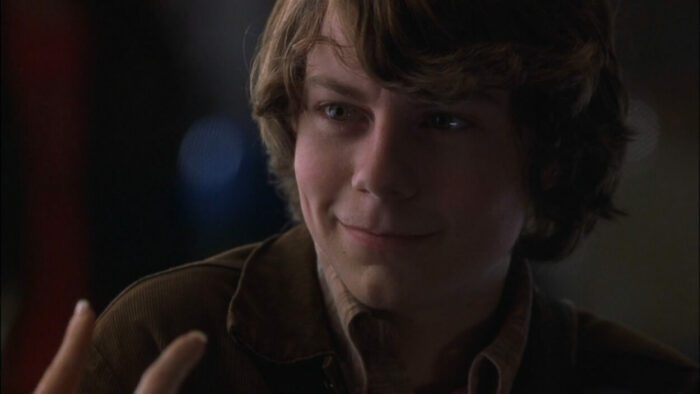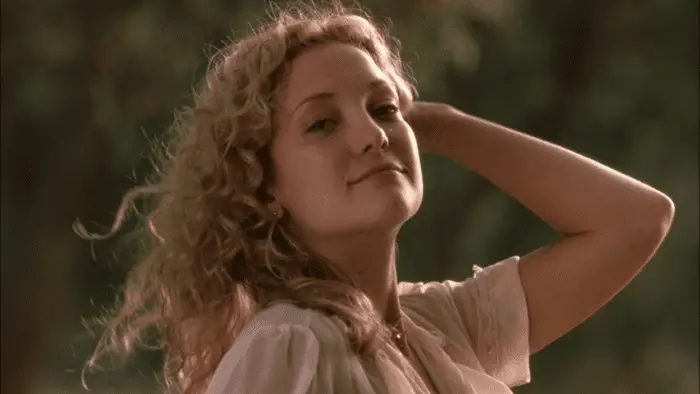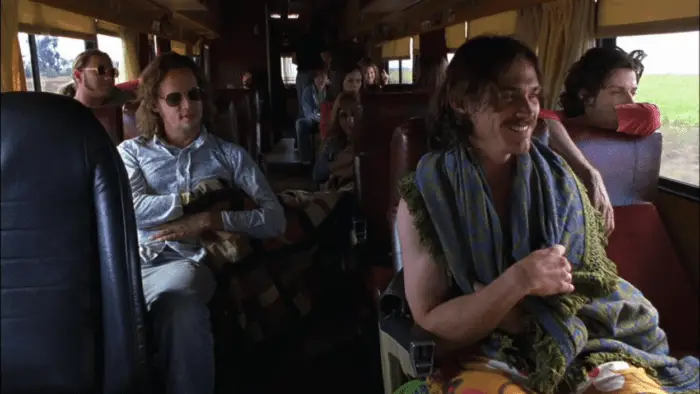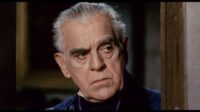To begin with, I love everything about Almost Famous. Cameron Crowe’s heartfelt masterpiece has stood the test of time since its release in 2000. Vanilla Sky and Jerry Maguire also came from Crowe’s brilliant mind, yet this movie is unique because it was deeply personal to him, as it is semi-autobiographical and borrows from events he experienced as a young rock journalist for Rolling Stone in the early 1970s. Crowe said: “The best stuff comes from real life. I really believe that life is the best writer.” He took the golden rule of writing what you know and put it into cinematic action (with creative liberties, of course). The characters in the film are loosely based on real-life figures Crowe encountered and are fully realized human beings, a true talent he possesses as a screenwriter and observer of life. To this day, Almost Famous remains a poignant and magical film of transcendent poetry.
Crowe places his characters in the distinct world of sunny San Diego, CA in 1969, as a young William Miller (Michael Angarano) and his mother, Elaine Miller (Frances McDormand), walk together along a festively decorated street by the ocean. William’s rebellious sister, Anita (Zooey Deschanel) flees their overbearing mother and becomes a stewardess. She tells William: “One day you’ll be cool.” She influenced William’s passion for music, listening to bands like The Who and Led Zeppelin, and led him to pursue rock journalism as a career. Thus, William’s quest for coolness begins, despite Elaine’s hesitations and fear her son will indulge in drugs and other vices of the time.
Fugit plays an eager, bright-eyed 15-year-old outsider who by a stroke of timing and luck falls into the Stillwater circle and becomes particularly close with the group’s lead guitarist Russell Hammond (Billy Crudup). Crudup and Fugit are a perfect pairing in terms of casting, as their characters complement each other extremely well with humorous quips and a sensitive understanding of who they inherently are, even in a crowded room. In many instances, Russell also presents himself as an outsider who doesn’t care about his image, unlike the narcissistic lead singer Jeff Bebe (Jason Lee), because he enjoys music for music’s sake.

Crowe’s screenplay delves into the trials and tribulations of the rock’n’roll world: the partying, the drinking, the sex, and the debauchery. It’s a lonely and superficial world where rock stars become numb to anything other than fame, money, and success—fleeting temptations that are often the sources of their downfall. Crowe truthfully dives into the harsh and cruel reality of the professional music business, where musicians and loyal band-aids are traded and sold like commodities. Lester Bangs (Philip Seymour Hoffman), William’s “uncool” mentor and ex-rock critic for Creem Magazine, warns him early on that these people are not his friends—they will corrupt him and use him for their selfish gain, and ruin his love for music. He advises William to uphold a reputation that’s “honest and unmerciful,” an insight into the cutthroat industry will eat him alive when it gets bored with him.
Despite this advice from a washed-up journalist who has witnessed this firsthand, William embarks on his journey of self-discovery and uncovers truths about the music industry that are good, bad, and everything in between. The piece William ends up writing about Stillwater illustrates that the members of Stillwater have layers and depth to them, even though they are flawed people. Russell mentions to William that being a rockstar means avoiding actual life responsibilities, but ultimately Russell’s path to becoming a “person of substance” means putting aside his selfish yearning for Penny and being a good friend to William. The core of Crowe’s film is truly about friendship and forming meaningful relationships—doing the right thing sometimes means letting go of what once seemed important.
During the whirlwind adventure of touring with Stillwater, William develops an emotional and romantic connection to the legendary Penny Lane (Kate Hudson). Penny is a die-hard music fan called a band-aid (not a groupie) who loves music to the depths of her soul. She is the epitome of a carefree and uninhibited dream girl, yet she’s also figuring out her story, and who she wants to be. The exploration of identity and the ever-changing concept of one’s self is a prominent theme of Crowe’s movie, paired with navigating life’s uncertainties.

Another thread in the narrative concerns the idea of home and how it manifests, specifically in how it pertains to Penny’s aimless drifting. A few times in the film she tells William she wants to escape to Morocco, get a new name, and be an entirely different person. A lesson she comes to grips with is that home is not necessarily a physical place or location, but the people you meet and the bonds you make along the way. On her journey of self-discovery, she realizes that reinventing herself is liberating and does so through traveling while becoming open to the present possibilities. Interestingly, in the end, the only place William wants to return to is the warm familiarity of his childhood home in San Diego. At one point, William says to Penny: “I have to go home,” to which she responds: “You are home.”
Family and trust are two other themes that Crowe touches on. William’s overprotective mother allows her only son to go fully into the wildness and unpredictability of a dangerous world—she trusts and has faith that he will come back to her in one piece. McDormand’s perfect performance as the fierce yet gentle Elaine Miller earned her an Oscar nomination in 2001. The idea of family and the importance of that in life are embraced in the comforting notion that Stillwater is family and has each other’s backs even if they let uglier sides get the best of them. Friends are family, too.
Conveying a host of thoughts and feelings without speaking is a testament to Crowe’s direction and how comfortable the actors are with one another. A scene during Stillwater’s road tour is undoubtedly the most memorable in the entire film. There is a dour mood on the bus after Russell goes AWOL at a random party, searching for realness, and there’s a general spirit of defeat. There’s complete silence, but as soon as Elton John’s “Tiny Dancer” diegetically begins to fill the space, everybody one by one starts to sing along. This melodic and beautiful scene conveys a crucial message: music is a powerful, uniting force that brings people together. It’s an element that signifies appreciating music for its healing qualities, putting differences aside, and simply enjoying the moment for what it is.

One of the many profound messages in the movie is embracing every facet of oneself, being who you truly are, and not putting on a front to mask your truest feelings (even if it makes you appear uncool). In a corrupt society unhealthily concerned with status, wealth, and artificial self-perception, Crowe intelligently gives his characters the freedom to uncover their truths. A line that Lester Bangs says to William is the film’s anchoring essence: “The only true currency in this bankrupt world is what you share with someone else when you’re uncool.” Yet, William’s perceived coolness always depends on what others around him think—only when he comes to his terms about what being cool means for him does he create his authentic story. Crowe expresses that it doesn’t matter in the real world (or even in the rock world) if he’s cool or uncool—he’s just William Miller, and that is pretty special.
Crowe won the Oscar for Best Original Screenplay, a testament to how masterfully Almost Famous embodies one of those rare examples of moviemaking that is still timeless over two decades after its release. Full of heart, laughs, and joy, Almost Famous is an unapologetic love letter to music. Boasting an incredible cast and a simple yet emotionally resonant story, Crowe created a nostalgic work of humbling art that gets better after every viewing.


